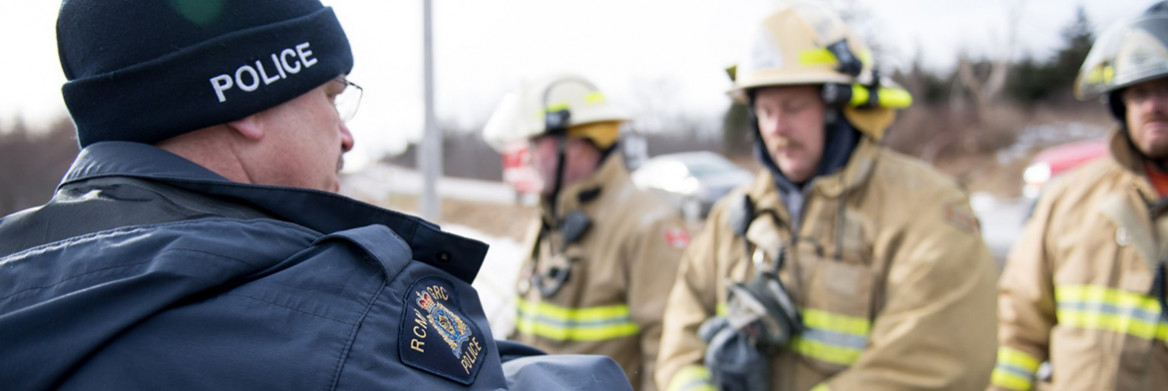Mental health advocates in Saskatchewan and Quebec are promoting a treatment program for first responders that offers not only help but also anonymity.
Designed for public safety personnel (PSP) and offered online (NET), the program provides therapy that focuses on changing first responders' thoughts that can lead to anxiety, depression, or trauma.
"Whether it's serious, or the day-to-day stuff, the program can help,
" says RCMP Sgt. Joy Prince, Saskatchewan RCMP's peer-to-peer coordinator who promotes the benefits of the online mental health treatment program called PSPNET.
"And it's completely private. If you don't want to tell anyone, you don't have to.
" The bilingual pilot program, which is offered free to current, former, and volunteer first-responders in Saskatchewan and Quebec, began in 2020.
"You learn the tools and strategies that will help to keep you in a healthy space,
" says Dr. Jody Burnett, a registered psychologist and clinical research associate with PSPNET.
The program is based at the University of Regina as part of the Canadian Institute for Public Safety Research and Treatment and led by Dr. Heather Hadjistavropoulos, a leader in internet-delivered Cognitive Behaviour Therapy. A 17-year-veteran of the field, Burnett says the program was designed after consultations with public safety personnel – everyone from front-line staff to administrative employees –incorporating their mental health care needs and their concerns about accessibility and privacy.
"Despite all the good work that's been done over the years to help people become more aware of the importance of accessing mental health services, stigma is still a barrier that often prevents people from reaching out,
" says Burnett. "People are still afraid how colleagues will react and how it will affect their future.
"
Erasing the stigma
Once participants who contact PSPNET staff are screened into the program, they will have access to five online lessons that teach various skills and strategies to manage their mental health symptoms in a healthier way. The self-guided work can be done anywhere and is supported by weekly emails or telephone calls from a registered therapist.
"I know there are people who wouldn't set foot in a counsellor's office but they may consider reaching out if they can do it from the privacy of their own home,
" says Burnett.
The workload is flexible enough so participants can complete it in eight weeks or take as long as 16. As well, information is provided along the way about how to access additional mental-health care resources, should they be required, once the PSPNET course is complete.
Prince, a 25-year RCMP veteran, went through the program herself, not because of any challenges but simply to learn how it works.
"You can't promote something if you don't take part in it yourself,
" says Prince, who adds there are many reasons why first-responders should consider PSPNET, or other mental-health treatment options.
"You owe it to yourself to take care of yourself,
" she says. "But you also owe it to your family and to the people you work with because, either way, you're someone else's back up and other people depend on you.
" The PSPNET team is funded by Public Safety Canada until 2023, and work is underway to expand it to other provinces and territories.
